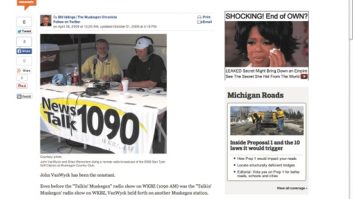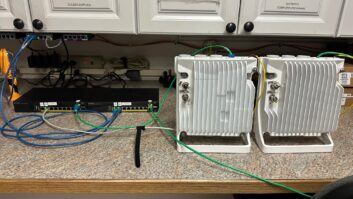The 109th U.S. Congress has featured a procession of proposals on regulating digital media, some of which could dramatically affect radio broadcasting. Most notable are Senate bill S-2644 – the so-called PERFORM Act – and proposed legislation in the House, The Audio Broadcast Flag Licensing Act of 2006.
Together or alone, these would threaten broadcasters’ ability to compete in an increasingly challenging marketplace. While we agree musicians and their associates are not always fairly compensated in the digital marketplace, broadcasters certainly aren’t the reason. If anything, airplay (terrestrial, Internet or satellite) has the opposite effect, stimulating legitimate sales of recordings and concert tickets.
Yet after releasing unprotected digital content for a quarter-century, the music industry now complains that broadcasters, consumer electronics manufacturers and rogue consumers are conspiring to pick their pockets. They also cite statistics of dubious derivation alleging the impact of digital piracy on sales. Even if these claims were all real, why is it assumed that the industry’s sales will always rise? Could it be that the quality of product or its marketing – or changing audience taste – has something to do with downturns, and not just digital piracy? In this country, no business warrants federal protection of its profitability. Doesn’t Congress have more important work to do than solve what are essentially business disputes for RIAA members?
Although the legislation targets satellite and Internet radio (including broadcasters’ webcasts), passage would put all forms of audio media on a slippery slope. The changes to copyright law could soon be applied to digital – if not analog – terrestrial radio, given both formats’ capacity for carrying “now playing” metadata (which enables the automated recording that the PERFORM Act would restrict in satellite radio).
The RIAA has said that HD Radio is its next target, which is where the House audio flag legislation comes in. It lays the foundation for a revised consumer audio “ecosystem” in which the music industry envisions increased control of digital content flow.
Even if this were possible, broadcasters should not be penalized for what CE devices and consumers do with content that stations distribute legitimately. Trying to solve this problem by changing license terms is like the police trying to stop speeders by raising gas prices.
Neither broadcasters nor CE makers should have to carry the content industry’s water. The burden of these proposals falls on the middle and bottom of the content food chain, while benefiting only those at the top. These laws would constrain or inflict new costs on broadcasters, tell CE makers how to build their products and curtail consumers’ well-established fair-use rights.
Given the small number of players and their level of business acumen, it shouldn’t require legislation to solve these issues, but bilateral negotiations – some of which are underway. Let’s drop the rhetoric at City Hall, and allow the industries to resolve these matters in their offices without floating a pageant of unfair or misguided mandates down the street outside.
– RW






